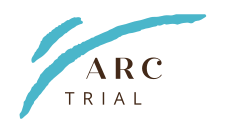Rotator cuff tendons are important structures within the shoulder. Tears in the rotator cuff are a very common finding, and the incidence increases as people age because the most common reason for tearing is degeneration of the tendons – wear and tear combined with ageing, that build up over time.
Pain in the shoulder is also common, but people with rotator cuff tears often have no pain in the shoulder, and many people with pain in the shoulder do not have a rotator cuff tear. People with painful shoulders and rotator cuff tears often find that the pain settles over time. Some are treated without surgery (sometimes with physiotherapy) and sometime surgery is performed to repair the tear in the rotator cuff tendons – these days this is usually done arthroscopically (through keyhole surgery).
Studies that have compared surgical repair to non-surgical treatment (usually exercises with a physiotherapist) have not shown surgery to be clearly better than non-surgical treatment, but there have been no published studies using placebo surgery – where the patients are ‘blinded’ as to what treatment they received.
The ARC study will include patients with shoulder pain and rotator cuff tears and randomise them (split them randomly) into two groups: one group will have arthroscopic surgery with repair of the rotator cuff and the other group will have arthroscopic surgery without repair of the rotator cuff. The arthroscopic surgery may involve other procedures, such as cleaning up the soft tissue and bursa in the shoulder, or addressing other tendon problems; the only difference will be that one group will have the rotator cuff repaired and the other group will not. Patients and surgeons doing the follow up will be ‘blinded’, meaning they will not know whether a rotator cuff repair was performed. Patients will be treated identically after surgery (the same physio program and follow up visits). This is a most objective way to find out if repairing the rotator cuff makes a difference to shoulder pain and function.
The study has been approved by the relevant ethics committees and research governance offices for each hospital involved. It is funded by the Whitlam Orthopaedic Research Centre, a not for profit organisation. All participants will be fully informed of the study and will consent to their participation.
The lead investigator is Professor Ian Harris from UNSW Sydney.
